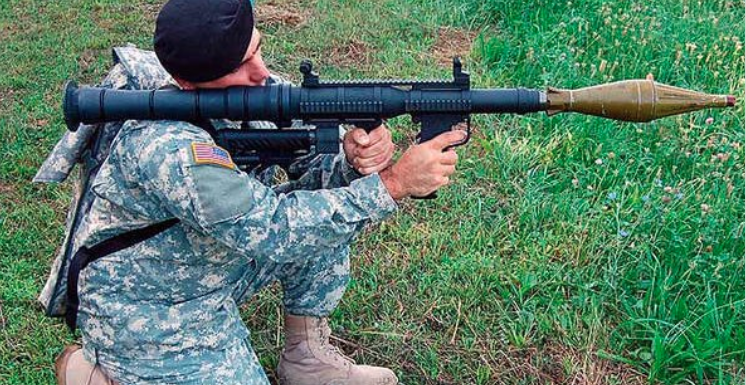“We will stay by the side of those who long for freedom and we will confront their oppressors,” vice President Mike Pence.

Ramping up interventionist rhetoric and policy against progressive governments in the region, United States Vice President Mike Pence said working for “freedom” in Cuba, Nicaragua and Venezuela is a priority for Donald Trump’s administration during a ceremony in which new U.S. ambassador to the Organization of American States (OAS), Carlos Trujillo, was sworn in.
During his speech the U.S. vice president singled out Cuba, Nicaragua and Venezuela. Of Cuba he said the island continued to live “under tyrannical legacy,” using terminology and rhetoric used by right-wing Cuban Americans against the communist government of Cuba.
Later it was Nicaragua’s turn. Pence accused Daniel Ortega’s government of “brutally repressing” peaceful protesters, a common allegation used by successive U.S. governments and their western allies to justify interference despite lacking proper evidence to back their claims.
The he attacked the Venezuelan government calling President Nicolas Maduro a “dictator” and charged him with turning “one of South America’s most prosperous countries into one of the poorests.”
ANALYSIS: Over the years Washington has maintained economic and political attacks against these three countries hoping to bring about regime change.
How the US Blockade Against Cuba Takes a Toll on Health, Not Just Politics
Since 1960 consecutive U.S. governments have imposed an economic blockade against Cuba. In the 1980s U.S. President Ronald Reagan began financing and training a paramilitary group within Nicaragua known as the Contras. In 2015 the Obama administration declared Venezuela a “threat to its national security” and the policy of economic sanctions and diplomatic isolation was unleashed.
The U.S. Senior Director for Latin America Juan Cruz called Monday for the Venezuelan military to overthrow Maduro under a constitutional provision that justifies rebellion against dictatorial rule.
Andrei Serbin Pont@SerbinPont
Juan Cruz, Special Assistant to President Trump and Senior Director for Western Hemisphere Affairs, when asked if the US government supports a military coup in Venezuela. #HSC2018
Earlier this year former U.S. Secretary of State Rex Tillerson also hinted at a military coup in Venezuela.
The new U.S. ambassador to the OAS announced Wednesday that the OAS general assembly meeting scheduled for June will include a debate on the situation in Venezuela. “We can get there with a resolution condemning Venezuela for not accepting basic humanitarian aid. That is the first step,” Trujillo explained.
Maduro has refused to accept international aid because he says he is certain that the economic crisis Venezuela faces has been created by the U.S.-sponsored sanctions that affect all Venezuelans.
Pence is expected to address the OAS permanent council next Monday.
This article was originally published by “teleSur” –
The 21st Century

Overthrowing other people’s governments: The Master List
By William Blum
Instances of the United States overthrowing, or attempting to overthrow, a foreign government since the Second World War. (* indicates successful ouster of a government)
- China 1949 to early 1960s
- Albania 1949-53
- East Germany 1950s
- Iran 1953 *
- Guatemala 1954 *
- Costa Rica mid-1950s
- Syria 1956-7
- Egypt 1957
- Indonesia 1957-8
- British Guiana 1953-64 *
- Iraq 1963 *
- North Vietnam 1945-73
- Cambodia 1955-70 *
- Laos 1958 *, 1959 *, 1960 *
- Ecuador 1960-63 *
- Congo 1960 *
- France 1965
- Brazil 1962-64 *
- Dominican Republic 1963 *
- Cuba 1959 to present
- Bolivia 1964 *
- Indonesia 1965 *
- Ghana 1966 *
- Chile 1964-73 *
- Greece 1967 *
- Costa Rica 1970-71
- Bolivia 1971 *
- Australia 1973-75 *
- Angola 1975, 1980s
- Zaire 1975
- Portugal 1974-76 *
- Jamaica 1976-80 *
- Seychelles 1979-81
- Chad 1981-82 *
- Grenada 1983 *
- South Yemen 1982-84
- Suriname 1982-84
- Fiji 1987 *
- Libya 1980s
- Nicaragua 1981-90 *
- Panama 1989 *
- Bulgaria 1990 *
- Albania 1991 *
- Iraq 1991
- Afghanistan 1980s *
- Somalia 1993
- Yugoslavia 1999-2000 *
- Ecuador 2000 *
- Afghanistan 2001 *
- Venezuela 2002 *
- Iraq 2003 *
- Haiti 2004 *
- Somalia 2007 to present
- Honduras 2009 *
- Libya 2011 *
- Syria 2012
- Ukraine 2014 *
Q: Why will there never be a coup d’état in Washington?
A: Because there’s no American embassy there.
https://williamblum.org/essays/read/overthrowing-other-peoples-governments-the-master-list

